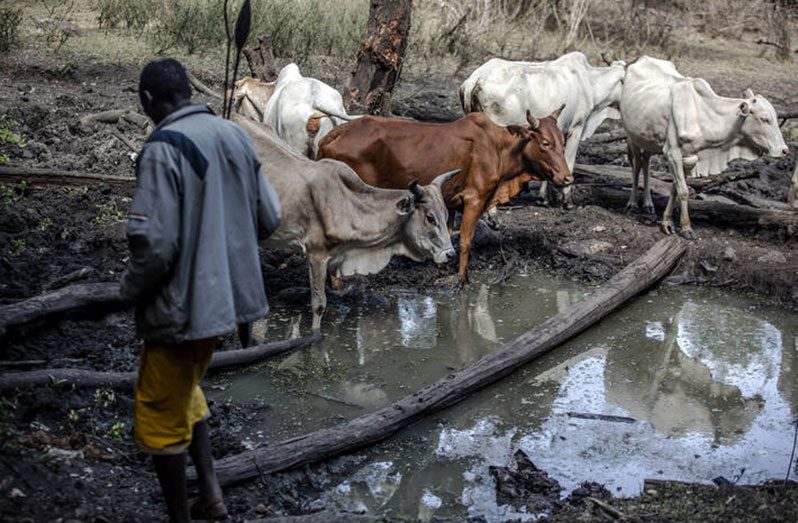FOOD security can only be achieved together with water security, the Director-General of the Food and Agriculture Organisation of the United Nations (FAO), QU Dongyu, said, calling for proactive action to improve integrated water management while boosting the quality of life and livelihoods. The Director-General spoke at a high-level launch of the report, “2021 State of Climate Services: Water” led by World Meteorological Organisation (WMO) featuring inputs from FAO experts.
The new study explores the progress made by countries in using climate services to address water-related challenges. It highlights the gaps in user engagement, forecasting, observing networks, and data collection that still exist.
“Staple food production in many agri-food based countries remains largely rain-fed and fragile against fluctuations from weather and climate variability,” the Director-General said, noting that the COVID-19 pandemic has further exposed vulnerabilities, especially of rural communities.
FAO estimates that high or very high-water shortage or scarcity currently impacts around 3.2 billion rural people with one-sixth of the world’s population living in severely water-constrained agricultural areas. In addition, more than 170 million hectares — that is, over 60 per cent of irrigated croplands — are subject to high water stress.
Speaking about the negative impacts that water scarcity and flooding have on food security in rural areas and on socio-economic conditions, the Director-General highlighted the importance of effective water-management approaches to adapt agri-food systems to extreme hydro-climatological events. He lauded the report for its clear recommendations to improve the implementation and effectiveness of climate services for water worldwide.
In his remarks, Qu cited three key factors that will help enhance the performance of water systems in the face of the climate crisis, including improved water management; policies and institutional capacities; as well as increased investments in integrated water resources management, especially in Small Island Developing States and Least Developed Countries.
The Director-General also pointed to the need to fill knowledge gaps on climate services in the water sector.
In conclusion, Qu reaffirmed FAO’s commitment to strengthen its work with WMO and other partners to increase the resilience of rural communities for water security and food security in the future.
FAO’s joint work with the WMO in the framework of the UN-Water Integrated Monitoring Initiative for SDG Six on clean water and sanitation provides high-quality data for evidence-based policy-making, regulations, planning, decisions and investments at all levels.
FAO’s new Strategic Framework 2022-2031 also reflects its commitment to strengthen the contribution of agri-food systems to reducing the impacts of the climate crisis. The organisation is scaling up early-warning systems for early action to advance knowledge and promote innovation, moving from risk mitigation to transformative change, through improved water management. One of these innovations is FAO’s WaPOR programme that monitors crop production and crop water use by satellite remote sensing.
The launch event also saw the participation of Petteri Taalas, Secretary-General of WMO, and Gilbert F. Houngbo, Chair of UN-Water and President of the International Fund for Agricultural Development (IFAD) as well as hundreds of stakeholders engaged in implementing or supporting the application of climate services for effective adaptation in the water sector. (FAO)




.png)









